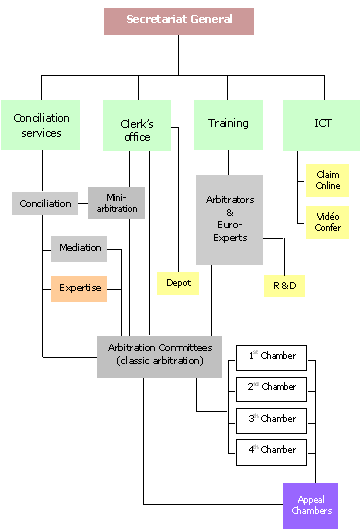|
|||||||||||||||||||||||||||||||


|
|||||||||||||||||||||||||||||||
|
|||||||||||||||||||||||||||||||
|
 Questa pagina non esiste in italiano Questa pagina non esiste in italiano
History  FROM THE OLDEST TO THE NEWEST JURISDICTION Arbitration exists since a very long time as para-judicial institution, well before the creation of our current nations. In the Middle Ages arbitration was the most common jurisdiction. The disciplinary council of tradesmen formed the first intercity (international) private jurisdiction. The development of international trade after the Second World War made the rebirth of arbitration inevitable. On June 10, 1958 the Treaty of New York was signed: All members of the UN adopted arbitration as a private jurisdiction issuing judgments of equal validity to those of state judges and accepted that arbitral awards pronounced in another signatory country are execuable. In Anglo-Saxon countries arbitration developed more quickly than on the European continent because they are not steeped in the Napoleanic Code, which assigns significant power and almost a divine role to the state. For the past seventy years, under the influence of an open economy, Western countries have been forced to (re)introduce arbitration into their national legislation. Parties can now choose an independent jurisdiction that also addresses the needs and rules of our modern economic times. Arbitration developed as a fast judicial alternative to solve civil and commercial disputes on national and international levels. The application of a simple and uniform regulation (Standard Dispute Rules) makes arbitration accessible to all European citizens and their companies. The Institute of Arbitration as it exists today was founded in 1994. It's an independent, non- governmental organization that is not bound by professional associations or any one government. This allows complete neutrality.  Board: Mr. D.R. LE FEVERE (President), Mr. C.J. LE FEVERE, (Secretary general), Mr. L.J-F. LE FEVERE (Treasurer), Mrs C.A. BODE (Secretary), Olaf A.(ICT) |
| |||||||||||||||||||||||||||||





